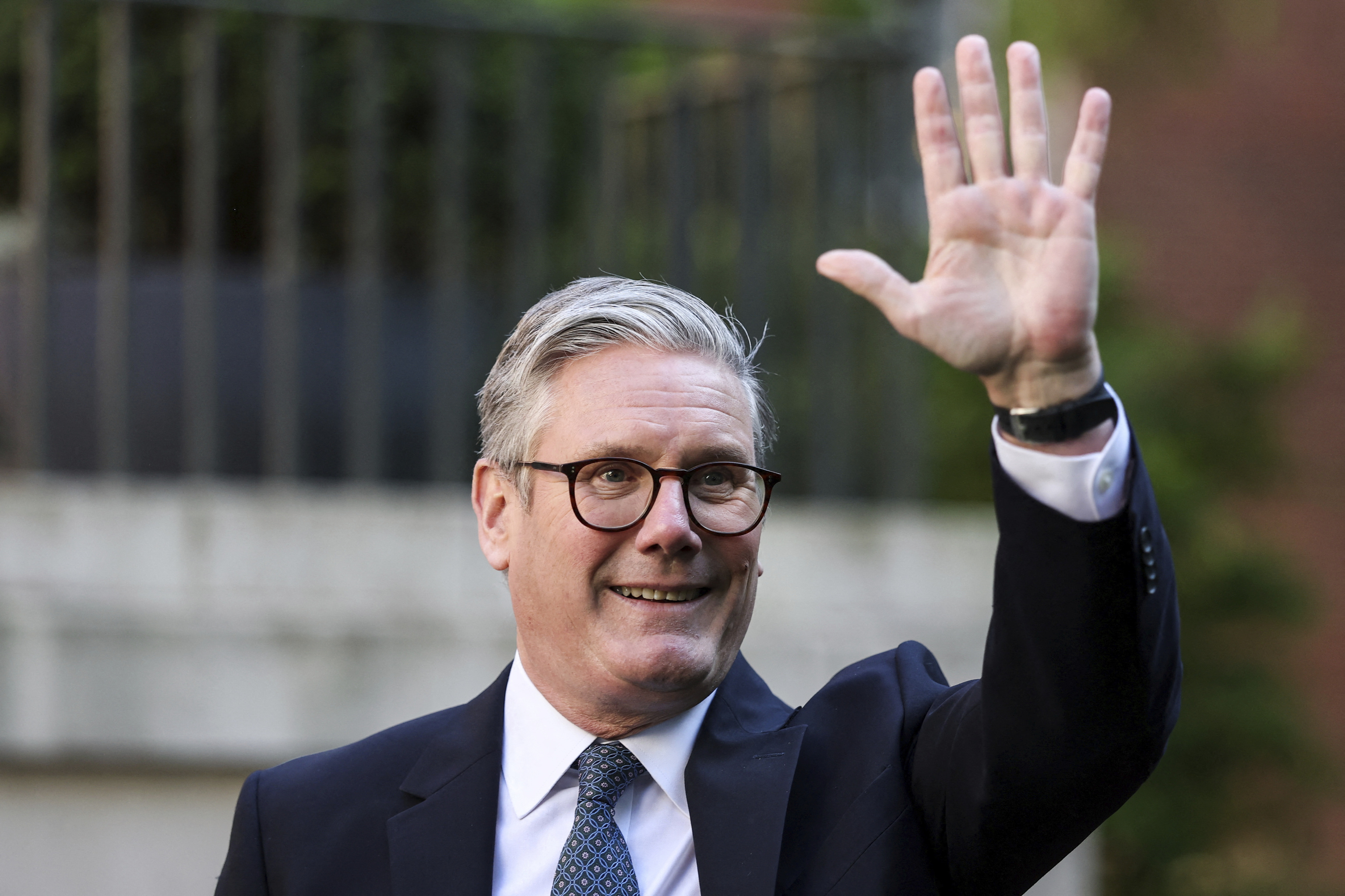Keir Starmer arrived on Monday at the first summit between the EU and the UK in a paradoxical situation. With support in Brussels, but with his popularity at its lowest level since winning the elections in July. Facing criticism from his allies - Canada - and his rivals - China for his closeness to Donald Trump.
And on the domestic front, the British Prime Minister does not have a much better outlook, although he at least has an overwhelming majority in Parliament to simultaneously navigate an opposition accusing him of being too soft on immigration and of mismanaging the economy, and a left-wing faction of his own party claiming he is adopting the positions of the far-right Reform Party regarding foreigners, public finances, cuts in development aid, and increased defense spending.
In theory, foreign policy should be the Prime Minister's main asset. But even there, things are not easy. Post-Brexit, the UK has found that its main asset in the world, its special relationship with the United States, has only depreciated since 51.9% of Britons voted on June 23, 2016, in favor of leaving the European Union.
Furthermore, things are more complicated for London because it is not just about choosing - or being a bridge - between Brussels and Washington. There is also a third capital: Beijing. "The UK has managed to become a kind of guinea pig, and that does not seem like a very enviable position," explained Janka Oertel, Asia Director at the European Council on Foreign Relations (ECFR), last Friday. The EU is the UK's largest trading partner, followed by the US and, at a great distance, China, and balancing all three is not easy. Even in a multipolar world where even Canadians - who are known for being discreet and very polite in the Anglo-Saxon world - have found that to be heard, they have to complain.
This has been evident with Starmer's decision to have King Charles IIIinvite Donald Trump for a very unique State visit to the UK - given that he already made one years ago. The proposal "has not impressed the Canadians given the circumstances," said the Prime Minister of that country, Mark Carney, who took office precisely in response to Trump's aggressiveness, which has threatened on numerous occasions to annex that country. In statements to the British television channel Sky News, Carney lamented that London's actions "shatter the clarity of the message" of firmness that the Ottawa government is sending to Washington.
In any case, it does not seem that these complaints will lead to a cooling in relations between the two countries. After all, the King of England is the Head of State of Canada - which implies that a potential annexation of that country by a republic, the US, would make him lose the title - and has discreetly but effectively sided with Canada in the dispute caused by Trump's imperialism. In fact, Charles III will inaugurate the next week the session of the Canadian Parliament, something that no British king has done in 47 years, in an event carefully planned between London and Ottawa to remind Trump that Canada is not for sale. However, even so, the fact that the Prime Minister of that country openly criticizes Trump's State visit to London is a sign of the complex world that Starmer has to navigate. From now until Trump travels to the UK - in September - Downing Street will have to dance a complicated dance with Ottawa and Washington.
China's reaction to the agreement with the US
But if Canadian complaints do not seem to have much impact, the situation is different when analyzing the relations between the UK and China due to Starmer's proximity to Trump. Just a week ago, the Beijing government strongly criticized the agreement reached between London and Washington under which the US will lift some tariffs imposed on April 2.
The reason for China's irritation lies in a clause imposed by the Trump administration that requires London to comply with strict security measures regarding the ownership and supply chain of metallurgical and pharmaceutical companies. According to the British newspaper Financial Times, these criteria will only be applied in the case of China. This is also how the Beijing government sees it, which has gone to the extent of publicly complaining about the measure in a statement to that media outlet stating that "cooperation between states should not be carried out at the expense of others."
If there is any country that has taken similar measures, it is China itself, so Beijing's argument is weak on all fronts. But that does not prevent it from being a cause for concern for the Starmer government, which has prioritized rebuilding its relations with China. To further complicate matters, London reached a trade agreement with India - China's rival for supremacy in Asia - just a week before the one it achieved with Washington.
Upsetting friends and enemies may be inevitable when you are a European power in a world where the West is progressively losing power and where the major global superpower shows no interest in maintaining alliances with countries that have been its historical partners.
It is also inevitable when you have exited a political and economic bloc that acted as a multiplier of national influence and where you had a very significant influence. These are the inevitable challenges of Brexit.
